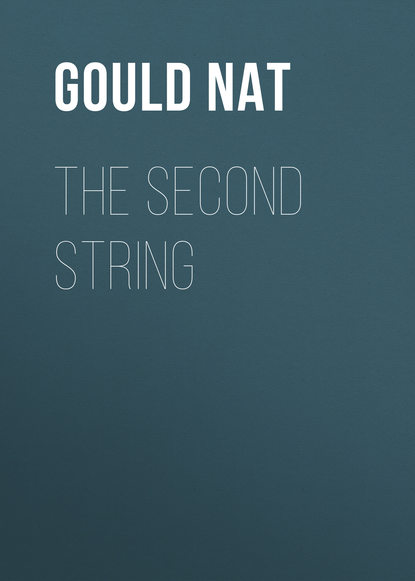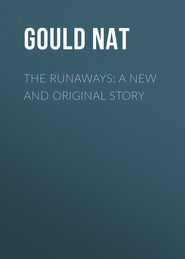По всем вопросам обращайтесь на: info@litportal.ru
(©) 2003-2024.
✖
The Second String
Настройки чтения
Размер шрифта
Высота строк
Поля
"Then you cannot tell me the contents of my supposed letter," said Winifred banteringly.
"No; that is hidden from me; but the writer loves you, as many will love you and fail, all but one."
"And what of him?" asked Winifred softly.
She knew it was all nonsense, but it was very sweet foolery and she loved to hear it.
"He is a man who will prove worthy of you, and your life will be full of happiness. I wonder if he is the brave gentleman who helped me a year or two ago, when I saw him not very far from here. I had a sick child, and he gave me all the money he had with him and walked back to Brighton. He was a noble man, worthy of a great love."
Winifred coloured as she said —
"I heard about it; he told me before he went to Australia."
"Then it is the same?" said the woman. "May God bless you both."
Winifred offered her money, and the gypsy eyed it greedily, but shook her head and said —
"No, kind lady, I do not want money for what I have told you."
"But you have a little boy; take it for him."
"Yes, I will take it for him."
Winifred changed her mind, and gave her half a sovereign. The woman's gratitude was unbounded and she showered many blessings on Winifred's head as she went on her way.
Winifred remained standing on the spot looking after her. She wondered if Jack would really come back with the fortune he said he went out to make. It mattered little to her whether he was rich or poor, but she wished him to succeed, and knew how he felt about it.
As she walked slowly home she revolved in her mind all that had taken place since he left. How lonely she had been at first, her old playmate gone, and no prospect of seeing him for some years. She knew she loved him when he had acted under that sudden impulse and taken her in his arms and kissed her. The memory of that embrace was very dear to her. Gradually as she became accustomed to his absence she grew to love him more and more. He was constantly in her thoughts; she wondered where he was, what he was doing. She listened eagerly to Captain Seagrave's account of the voyage, and could have hugged the rough old seaman when he praised Jack up to the skies. The arrival of his first letter was a great event. She read it again and again; it opened up to her a new field of thought, and she wrote him glowing epistles of their doings at The Downs. She knew even trivial things would interest him because she wrote of them, and they told of the dear old country where they had spent so many happy hours together. There were no words of love in her letters; she would not write them, but he would understand, and she meant to leave him perfectly free. The mere thought of Jack falling in love with some other girl sent her into a cold shiver, but she quickly smiled and reassured herself when she thought of that kiss. Then came more letters, and she gloated over his wonderful adventures and pictured him fighting hordes of terrible savages, and diving to the bottom of the sea for pearls. Her father laughed at her, and said that on the whole he fancied Jack was having a very good time, and was far more likely to be dancing with native beauties in scanty costumes than battling with blacks, at which assertion she was highly indignant.
When she entered the house Sir Lester said —
"A letter for you, Win, from – "
"Jack!" she exclaimed.
"Yes, I expect so; we have not many friends in Australia."
She thought of the gypsy woman, and how quickly her words had come true.
She opened the letter and read it eagerly, devouring every word before she proclaimed the contents to her father; but he was contented to wait. He knew how much these letters meant to her.
"Well, what news, my girl?" he asked.
"Oh, it's splendid; it sounds too good to be true – too much like a fairy tale."
"Read and I shall understand," he replied smiling.
She read Jack's long letter, telling her of the adventure of the great black pearl, and how he was determined to secure it for her, and bring it home in triumph. It was one of the finest of pearls, and no one was half so worthy of it as she. He had meant it for her the moment he had found it in the shell. Now an "old thief of a pearl dealer had it," but Barry Tuxford said it was safe, and what Barry affirmed was gospel. Then she read about gold discoveries, mining shares, racehorses, and many other things, and finally wound up by saying on her own account that she always knew Jack would be a success, and that he would make a fortune.
"What do you think of him, father?"
"He is a brave fellow, and worthy of my daughter's love."
"How do you know he has it, or that he wants it?" she asked slily.
"There are certain symptoms, Win, I cannot fail to understand, and if Jack does not want my little girl he's about as big a fool as the earth holds," replied Sir Lester laughing.
"A black pearl. Fancy me wearing such a precious thing. I shall be frightened to touch it, after all the adventures it has passed through."
"You have not got it yet."
"But Jack says he will get it for me, and that is quite sufficient."
"His friend, Barry Tuxford, must be an extraordinary man. I should like to meet him," said Sir Lester.
"And so should I, to thank him for all he has done for Jack."
"Send him a special message in your next letter. He deserves a page to himself," said her father.
"And he shall have it; a whole page," said Winifred.
CHAPTER TWENTY-SIXTH
A PUZZLE
The trial had taken place, and Lucky Boy beat Black Boy and two others easily, much to the surprise of Joel Kenley, who could not understand it. On this form Lucky Boy's victory at Rosehill could not have been such a fluke after all.
Jack saw the trial and was puzzled. He had ridden both horses in their work and had a decided preference for Black Boy. On more than one occasion he had galloped with Lucky Boy and beaten him, and yet there was no mistaking the way in which Barry's horse won the trial.
He thought the matter over and came to the conclusion that there must be some mistake, and hinted as much to Joel, who laughed and said there could be no error, because both horses were ridden out, and they carried level weights.
"We ought to have another trial," said Jack.
"I do not advise it. The Cup race takes place next week and both horses are fit. If you take my advice you will back them both and the odds against Black Boy are very tempting. A hundred to three means a big win for a small outlay, and as you can also obtain a hundred to eight about Lucky Boy there is no cause to complain about the tightness of the market."
"They are liberal prices," said Jack, "but not excessive on the form."
Abe Moss was determined to be on the right one of Joel Kenley's pair for the Sydney Cup, and as he knew exactly what Black Boy was capable of he thought after the trial that Lucky Boy held a splendid winning chance. Abe, however, seldom gave anyone credit for acting straightforwardly, and when Lucky Boy won the trial he had doubts about the genuineness of the gallop.
One evening he met Bricky Smiles in Adams' Bar, in Pitt Street. Bricky knew him, and saw no reason to avoid him. Moss seized the opportunity and commenced operations by standing drinks. He knew Bricky's failing, the old jockey took considerably more than was good for him at times, many people in more exalted positions do the same, but they hide it more effectually.
A couple of glasses of whisky and soda loosened Bricky's tongue, and he talked volubly. Gradually Abe Moss led him on to the subject he desired, but the moment he hinted at anything connected with Kenley's stable Bricky became reserved.
"He's not primed sufficiently," thought Moss, and called for more liquor.
They sat down and Moss said —
"If you'll do me a favour, Bricky, I'll make it worth your while."









